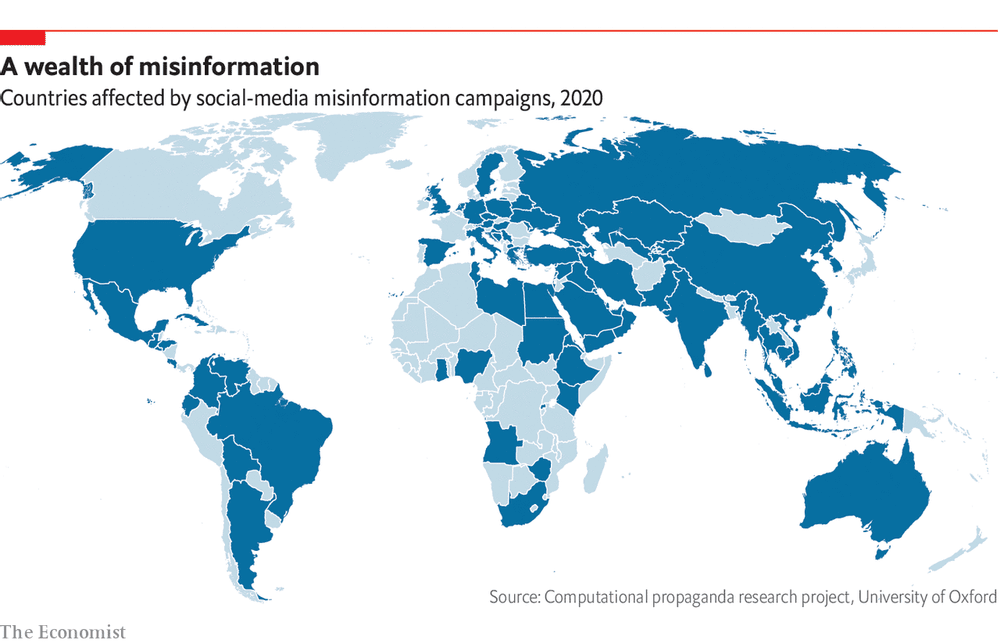
Daily chart
A growing number of governments are spreading disinformation online
Such campaigns are becoming more sophisticated and harder to stop
IN THE RUN-UP to Uganda’s general election on January 14th, social-media platforms are struggling to combat propaganda and fake news. This week Facebook announced that it had taken down a network of government-linked accounts that it alleges engaged in “coordinated inauthentic behaviour” aimed at boosting support for Yoweri Museveni, the country’s president, at the expense of his opponents. The social-media giant says the Government Citizens Interaction Centre, part of the Ministry of Information, used “fake and duplicate accounts” to manipulate public opinion. “Given the impending election in Uganda, we moved quickly to investigate and take down this network,” Facebook said in a statement.
Disinformation campaigns such as this are on the rise, according to a new report by the Oxford Internet Institute, a department at the University of Oxford that studies the relationship between the internet and society. The researchers, who since 2017 have been monitoring efforts by governments and political parties to manipulate public opinion online, say that organised disinformation campaigns were waged in 81 countries in 2020, up from 28 three years ago. Such propaganda, which has become essential to many governments’ and political parties’ campaigning efforts in recent years, is used to discredit opponents, influence public opinion, drown out dissent and meddle in foreign affairs.
The methods have changed as well as the actors. In 2016 bots were all the rage. These days human-curated fake accounts are preferred because they are harder for both platform moderators and the public to detect. Social-media influencers and civil-society groups are now employed to disseminate propaganda.
Misinformation has become more professionalised, too. Whereas disinformation campaigns might have previously been carried out by government employees, today mainstream public-relations firms are hired to do the dirty work. The Oxford researchers identified 48 countries in which private firms worked with governments and political parties on disinformation campaigns in 2020. And they are not cheap. Since 2009 almost $60bn has been spent on contracts with private firms.
Despite efforts by Facebook and other social-media platforms to curb such nefarious behaviour, governments often have the upper hand. On January 12th, a day after Facebook took down accounts linked to Mr Museveni’s campaign, the Uganda Communications Commission, the country’s communications regulator, ordered internet service providers to block access to all social media and messaging apps. “This is unfortunate but it is unavoidable,” Mr Museveni said in a televised national address. As for Facebook, he warned: “If you want to take sides against the (ruling party) then that group will not operate in Uganda.”

